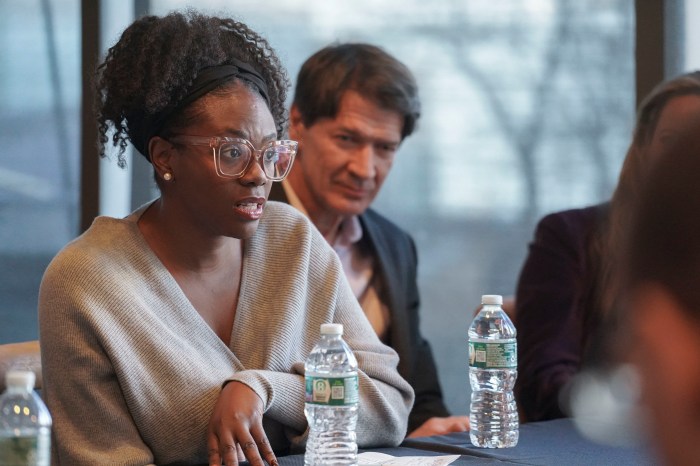By Philip Newman
“The statistics are staggering,” Meeks told a news conference outside City Hall Tuesday. “We want to look at this problem and talk about what can be done.””In New York City alone, black men have steadily lost ground in job holding relative to other groups,” Meeks said.”According to a report by the Community Service Society of New York, in 1993-1992 the black male job-holding rate was 14.6 percentage points below that of whites,” Meeks said. “By 2004-2003, it had grown to 19.9 percentage points.”Meeks said other accompanying information was also bleak. He said HIV/AIDS was growing rapidly among African-American men and one in three black men between 20 and 29 is under some form of criminal justice supervision.”And the dropout rate among black youth has increased,” he said.Meeks said he and U.S. Rep. Edolphus Towns (D-Brooklyn) as well as several other members of the Congressional Black Caucus would convene the State of the African Male Initiative Conference Saturday, June 18, at the New York University Law School in Manhattan. The subject will be “Changing the Image, Changing the Reality, Taking Responsibility.”Meeks said U.S. Reps. Major Owens (D-Brooklyn), Charles Rangel (D-Manhattan) and Donald Payne (D-N.J.) would take part in the conference.Participants were also to include Dr. Gerrard Bushell, institutional adviser of Citigroup Asset Management; Rev. Al Sharpton; Dr. Roland Anglin, executive director of the New Jersey Public Policy Research Institute; Paul Williams, president of the New York City Chapter of One Hundred Black Men; Dr. Antonio Martin, executive director of Queens Hospital Center; Darwin Davis, executive director of the New York Urban League; David Jones, CEO of the Community Service Society of New York; and David Paterson, New York State Senate minority leader.Meeks said the objective of the conference was to identify solutions to the problems of the black male in New York and New Jersey, “to get grassroots organizations and people involved” and to generate regional meetings to encourage dialogue.Meeks said the conference was free and open to anyone in New York and New Jersey, not just men.”Black women are welcome,” he said.”This is not to be a one time thing,” Meeks said. “We plan a follow-up. And we are not planning to place blame for the plight of so many black men but rather to take responsibility and try to determine what can be done.”Reach contributing writer Philip Newman by e-mail at news@timesledger.com or by phone at 718-229-0300, Ext. 136.


































